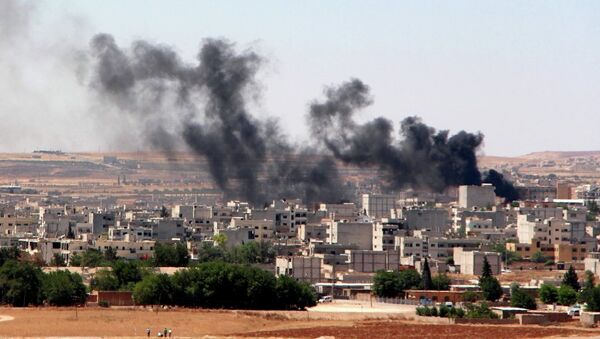WASHINGTON (Sputnik) — Fernandez was commenting on the growing appeal of the Islamic State to some Muslims in the West and the best ways to counter that appeal.
“The biggest weakness that [the Islamic State] has is that it [presents itself] as the defender of the Muslims, when it spends a lot of time killing Muslims.”
FBI Director James Comey has warned that close to 200 US citizens have travelled or attempted to travel to Syria to fight alongside the Islamic State.
Fernandez argued, supporters of the Islamic State needed to recognize that it slaughtered innocent Muslims in the thousands.
“The answer to what they are saying is that [the Islamic State] is killing Muslims in the name of Islam.”
Islamic State supporters should be told, “You say you are fighting [Syrian President Bashir] Assad… but actually, you spend all your time killing Muslims,” the counterterrorism veteran continued.
The Islamic State’s strategy in Syria, Fernandez said, “go and spill blood, and have blood on their hands and are radicalized with an ideology, which is ferocious, anti-Western, [so] that when they go back, they could commit acts of terror in the West.
The core of this Islamic State policy, he said, was that its supporters “would be brainwashed in the East and would be returned [to] the West and commit horrible crimes.”
The media portrayal of terrorism and jihadist groups as criminals is the major player of the recruiting process, Fernandez said.
“The fact that the US media portrays them as negative, actually feeds into the narrative. In other words, these are the bad boys, the elite, the revolutionaries… The fact that their parents, the authorities, the mainstream says that they are awful means that may be they are not so awful.”
The expert suggested that social media websites like Facebook and Twitter police their platforms against extremist messages, which would violate their terms of service.
Fernandez is Vice-President of the Middle East Media Research Institute (MEMRI). He is a member of the Board of Directors of the Center for Cyber and Homeland Security at George Washington University and a member of the Public Diplomacy Council.


